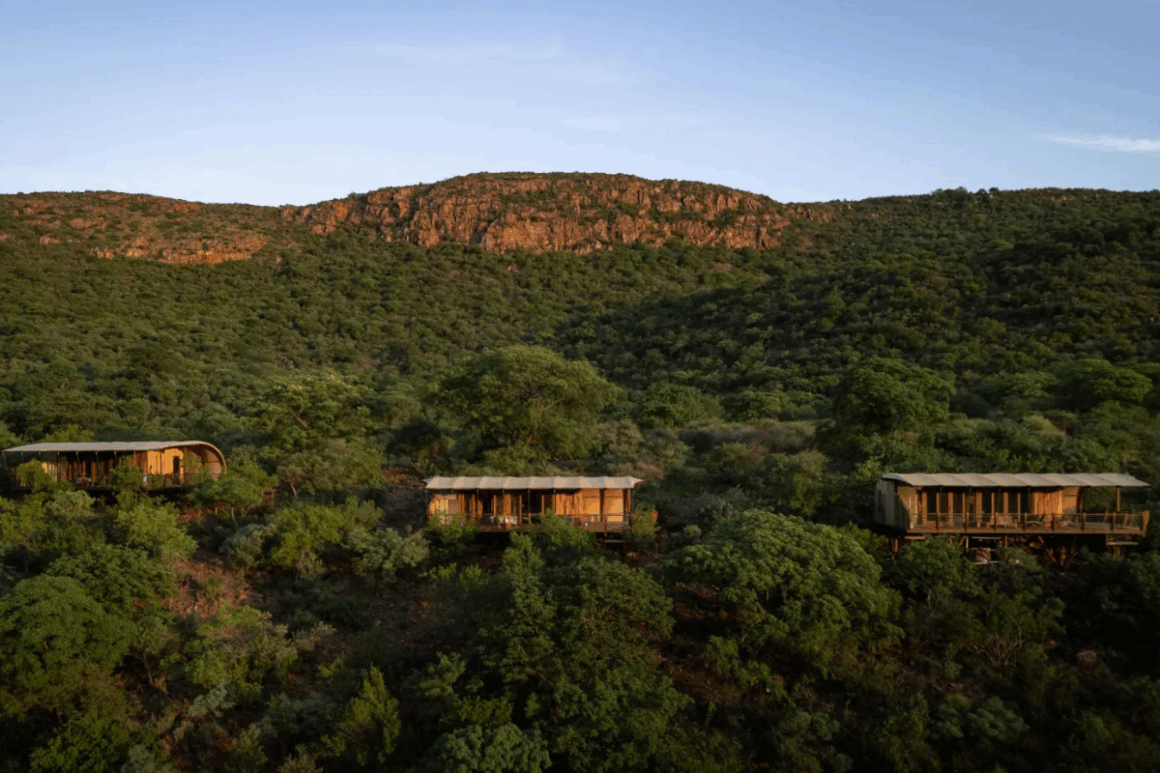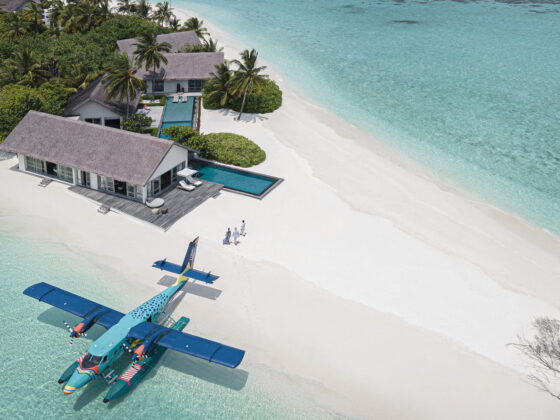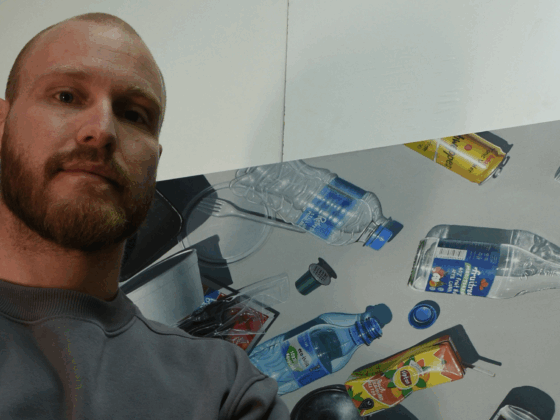Tucked away in the rugged Soutpansberg mountains of Limpopo lies a striking new addition to South Africa’s high-end travel scene—Luvhondo, a soulful six-suite sanctuary that’s as elegant as it is ecologically conscious. This is not your typical safari lodge—it’s a bold, heartfelt conservation vision reinterpreted through the lens of luxury.
For Sarah Dusek, co-founder of the glamping empire Under Canvas in the U.S., the plan was never to return to hospitality. After relocating to Cape Town and selling her stake in her successful venture, she pivoted toward impact investing—backing women-led enterprises through her VC firm. But Africa has a way of calling people home. Her affection for the continent—first ignited in Zimbabwe over two decades ago—never truly waned.
“I didn’t come here to start another lodge,” she admits. “But the land had other ideas.”

What began as a search for a quiet weekend escape became a full-blown eco-development rooted in regeneration. The property the Duseks stumbled upon—a sprawling 5,000-hectare former hunting farm—was remote, untamed, and utterly captivating. And, perhaps most importantly, it was under threat from nearby coal mining interests. “It felt like the land chose us,” says Dusek.

Determined to protect it, the couple set out to build something transformative: a luxurious tented retreat that sustains both land and people. Luvhondo, the first expression of their new eco-hospitality brand Few & Far, stands proudly on a cliff where an old hunting lodge once sat—overlooking a dramatic tapestry of baobabs, koppies, and wilderness.
Every design detail is deliberate. From floor-to-ceiling glass panels and private splash pools to four-poster beds draped in soft netting, the lodge blends refined design with a light environmental footprint. But luxury here doesn’t just live in the aesthetics—it’s also in the philosophy.

Chef Nhlakanipho Sokhela—better known as Sox—brings a culinary flair that rivals Johannesburg’s finest kitchens. Think grilled duck, truffle risotto, cinnamon ice cream, and house-fermented kombuchas—all served amid jazz rhythms and panoramic views. This isn’t bush cuisine as you know it. It’s a gastronomic journey grounded in terroir, talent, and taste.
Despite the remoteness—reached via two flights from Cape Town, a highway riddled with potholes, and a craggy 30-minute off-road climb—the experience feels profoundly rewarding. In part, because it’s earned. And in part, because what awaits is untouched Africa at its most poetic.
Limpopo, often overlooked in favour of better-known provinces, is one of the country’s most spectacular yet underserved regions. Luvhondo aims to change that. With plans for a solar-powered aerial cable car, expanded wildlife corridors, and future camps designed to bring both employment and ecological restoration, the Duseks are creating more than a lodge—they’re building a legacy.

The wildlife here is slowly returning. Though guests won’t spot lions just yet, giraffes no longer flee at the sound of footsteps. Instead, they linger—watching. Hikes through the reserve offer tranquil encounters with zebra, kudu and flora-rich escarpments rarely explored. For now, the absence of big predators is an advantage—inviting immersive, safe exploration.
Looking ahead, the vision is audacious: removing fences to allow wildlife movement between neighbouring reserves, reintroducing species like rhino, and reestablishing an ancient wildlife corridor extending toward Mapungubwe and eventually Kruger National Park. A collaboration with SANParks and Conserve Global is already underway, with aims to regenerate millions of hectares of wilderness.

“This land is too important to lose,” says Dusek. “We’re showing there’s a compelling alternative to mining—one that’s good for communities, biodiversity, and travellers alike.”
Luvhondo is not just a destination. It’s a statement. An invitation to engage with Africa differently: more slowly, more thoughtfully, and with deeper reverence. A rare luxury in an ever-rushed world.
all images Image courtesy of Jemma Wild








